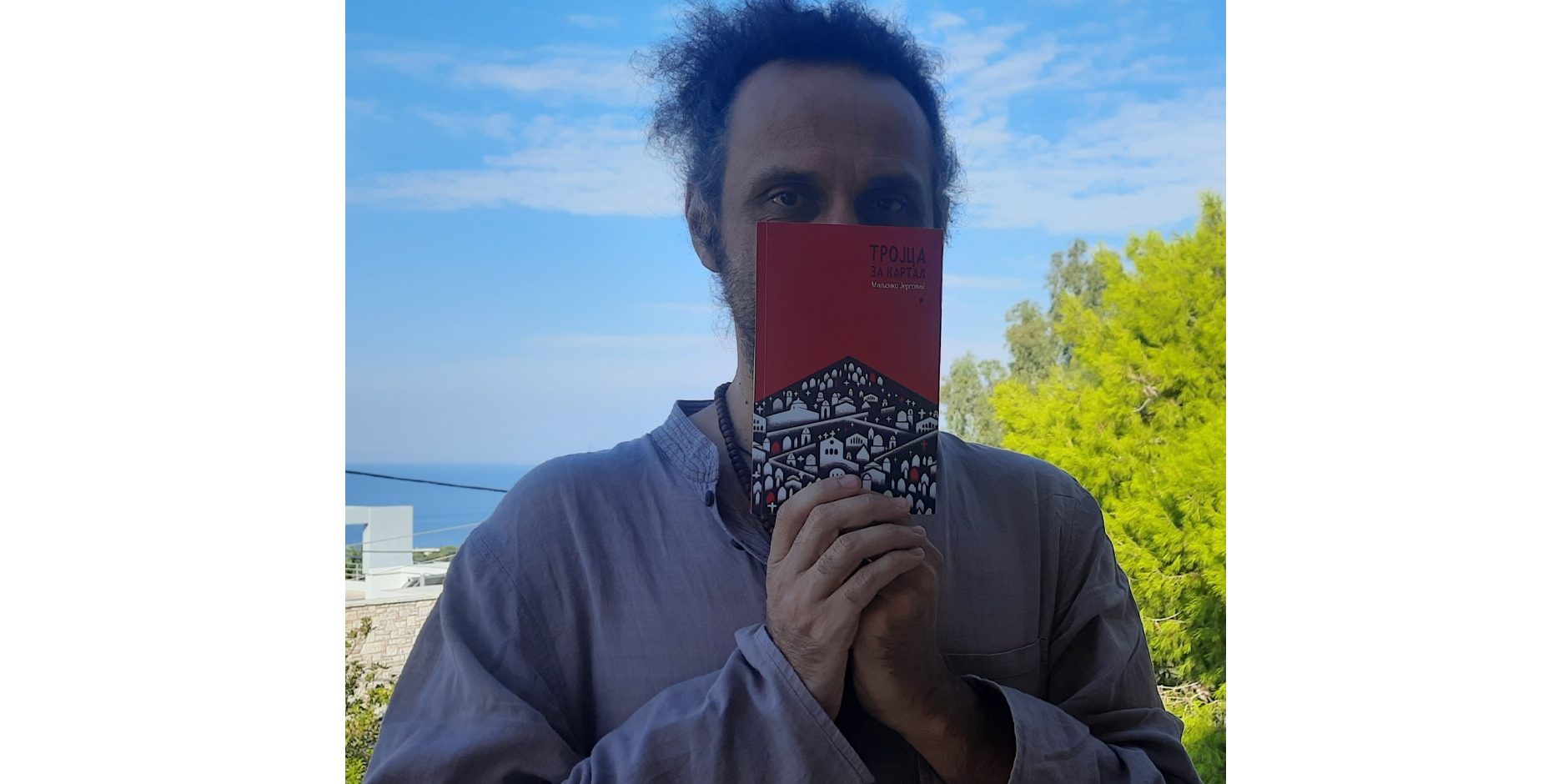1. What does the "Dragi" award initiative represent for you?
When I think of Dragi Mihajlovski, I think of a teacher. Dragi is one of my teachers, although he was never my professor. When I say teacher, I mean someone I look up to, someone who is a shining example of how to work. I learn from both his translations and his source texts. If I were to use a syntagm for Dragi, I would say in an instant: sumptuous wit. I am glad that the "Dragi" award has revived and I hope that over the years it will become one of the most relevant literary awards in our country, and there are not many such awards.
2. How important are rewards in your work?
I am much happier when someone praises a translation than when they praise something I have written. Even this entry among the five finalists is pleasing. It is important to make the book more visible to the audience. It seems to me that it means a lot to the audience which book is awarded, it is important for them to pay attention to it. Rewards are welcome, but not at any cost. Honestly, I have never focused on awards, neither when I was writing my books nor when I was translating. They are still secondary, they come later.
3. What challenges does the literary translation bring?
Every text is different. Sometimes it is a challenge to translate the seemingly untranslatable words, sometimes you have to enter the author's mind to understand how all those images and metaphors came about, sometimes it is a challenge to capture the silence in the text, the subtlety of the expression, the high simplicity, if not overdo it with some of its unnecessary accessories. It is important not to notice the presence of the translator in the translation, it is important that everything sounds as if it was originally written in Macedonian, while remaining faithful to the original.
4. Is any preparation required before starting the translation? Do you have your own ritual?
Rereading the translation is my ritual, it is the most important part of the process. Then the gaps are filled and the bumps in the translation are smoothed, then the solutions that seemed impossible appear, then the oversights are caught. When I translate poetry, I always read the translation out loud to hear how it sounds, what is it’s rhythm, does it squeak somewhere, does it breathe freely. I am doing the same now, with these answers.
5. Does the translation help in enriching the language and the expression?
Through the translation, I learned the most about the Macedonian language. Looking for solutions, I learned words that I didn't know existed, but I also invented new ones that naturally came to life in our language. I translate from South Slavic languages, so often morphonology allows some foreign neologisms, and not only neologisms, to settle in our language as well.
6. Is translation more challenging when translating a famous or favorite author?
I don't know if the challenge is bigger, but the trepidation is for sure. Although, looking back, I've never translated a book I didn't like. Even when I started translating, I started with seriously high-quality works. It makes a difference whether a living or a deceased author is being translated. I always ask the living author(s) about the places that are unclear to me, so sometimes we look for solutions together that we will both be satisfied with. With deceased authors, that process is more difficult or at least more complicated.







